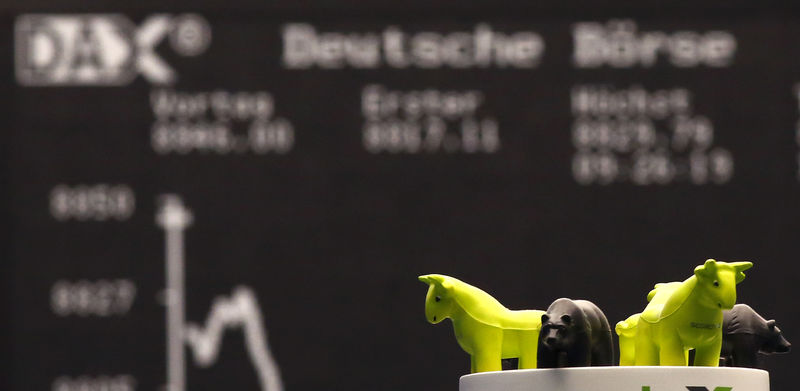This post was originally published on this site

Investing.com – European stock markets slipped lower Friday, with investors remaining wary as a brutal year marred by Russia’s war in Ukraine, soaring inflation, and the associated tightening monetary policy comes to an end.
At 03:15 ET (08:15 GMT), the DAX index in Germany traded 0.6% lower, the CAC 40 in France traded down 0.6%, and the FTSE 100 in the U.K. dropped 0.4%.
European stocks are on course for their worst year since 2018, with the pan-European STOXX 600 index set to drop around 12% this year, its worst performance since a 13% annual decline in 2018.
The new year is also likely to be tricky for European equities, at least at the start, as the European Central Bank has made it clear that it will keep raising interest rates in the near term, continuing its fight against inflation near record levels.
This is likely to result in the Eurozone heading into a downturn early in 2023, while the Bank of England has already said the U.K. economy is in what it has projected to be a prolonged recession.
Data released earlier Friday showed that British house prices dipped 0.1% in December compared with November, the fourth consecutive monthly price fall and their worst run since 2008, according to mortgage lender Nationwide.
In annual terms, house price growth slowed to 2.8% in December from 4.4% in November.
Spanish CPI rose 5.8% on an annual basis in December, a fall from 6.8% the prior month, but still rose 0.3% on the month.
Investors will also be keeping a wary eye on developments in China, a key export market for European companies, as the world’s second-largest economy lifts its strict testing and lockdown measures in place since the start of the pandemic three years ago.
This has resulted in a surge of COVID cases, fueling concern across the globe about the emergence of new variants. This has resulted in a number of countries, including the U.S. and Italy, adopting mandatory testing and entry restrictions for travelers from China.
Economic activity is likely to suffer in the near term, before the outbreak stabilizes.
Oil prices edged higher Friday, bouncing after the previous session’s losses, on course to end the year with modest gains.
U.S. crude oil inventories rose by a modest 718,000 barrels last week, according to data from the Energy Information Administration, released on Thursday.
This increase came as something of a surprise after the industry body American Petroleum Institute had reported a drop of 1.3 million barrels.
By 03:20 ET, U.S. crude futures traded 0.6% higher at $78.79 a barrel, while the Brent contract rose 0.5% to $83.89.
However, the U.S. contract is on course to record a gain of 4.5% in 2022 and Brent an increase of 7.6%, in a year marked by Russia’s invasion of Ukraine, which sparked supply concerns.
Additionally, gold futures fell 0.1% to $1,823.85/oz, while EUR/USD edged lower to 1.0660.


